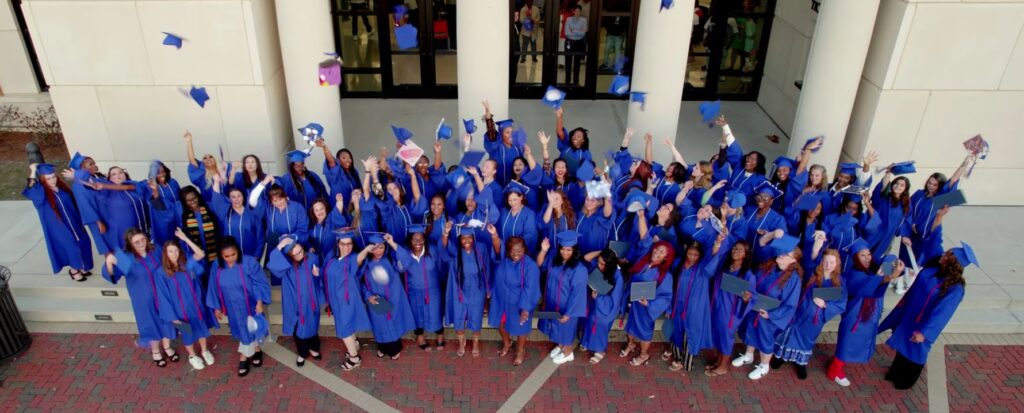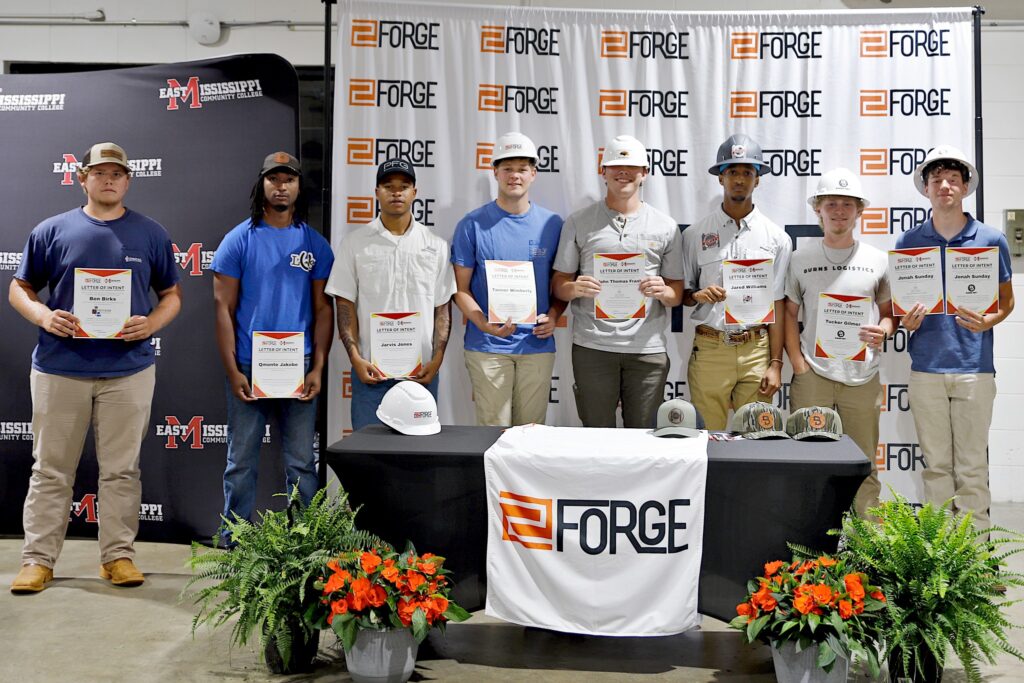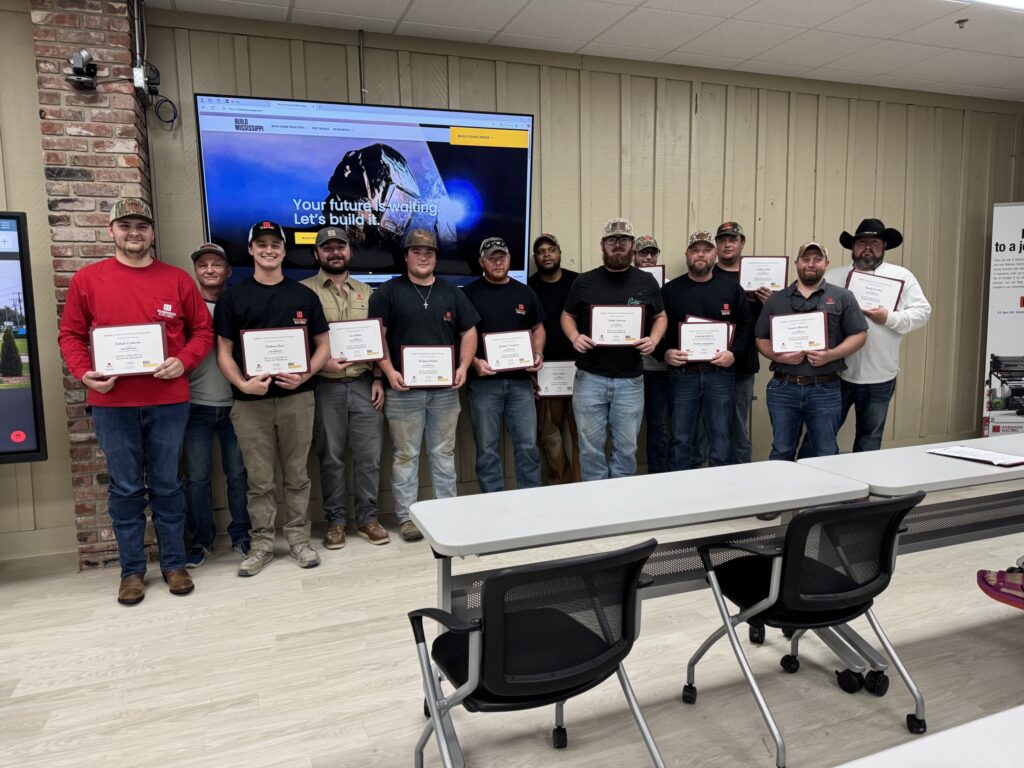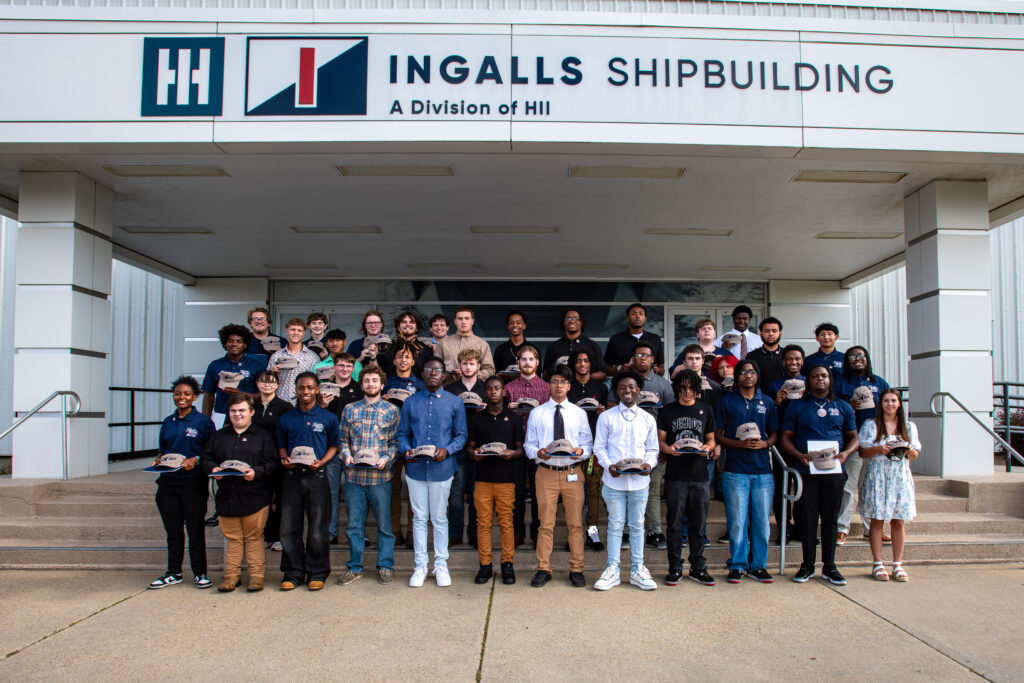Home »
Made in Mississippi: Talent, Training, and Tomorrow
06/10/2025
What if education didn’t just prepare students for the future—but actively created it? Across Mississippi, work-based learning is doing just that. By combining classroom knowledge with real-world experience, students are finding purpose, while employers are building the talent pipelines they need to grow.
From internships and apprenticeships to job shadowing and hands-on technical training, work-based learning is unlocking potential in every corner of the state. It’s how we strengthen communities, empower people, and meet the evolving needs of Mississippi’s industries. Here’s how four partners are leading the way.
In Cleveland, Robinson Electric is rethinking how technical knowledge is built and retained. Long known for its excellence in electrical contracting, the company saw a gap—how to go beyond routine training and truly develop talent that understands both the how and the why of the work.
“Our goal is to accelerate learning,” said President and CEO Brian Robinson. “We have talented employees who know how to do the job, but we want to help them understand the principles behind it. This apprenticeship isn’t just training—it’s a pathway to long-term success.”
The results, while still early, are already shifting internal culture. Employees are gaining deeper knowledge, feeling more confident in their roles, and understanding how their work connects to broader systems. With nationally recognized certifications, participants aren’t just growing—they’re becoming more mobile and competitive in the job market.
On the Gulf Coast, Singing River Health System is rewriting the script on healthcare workforce development. As the state’s first medical apprenticeship program, the Singing River Healthcare Academy is answering a critical call: fill the healthcare talent gap with local, career-ready professionals.
The program’s portfolio includes apprenticeships in nursing, medical assistance, phlebotomy, surgical technology, and more—all structured to let participants earn while they learn. For many, it’s the first step toward a rewarding, upwardly mobile career in medicine.
“COVID-19 exposed how fragile our healthcare workforce pipeline was,” said Stephanie Utesch, Human Resources Operations Director at Singing River. “This program gives us a sustainable, community-rooted solution.”
By integrating hands-on training and formal instruction, Singing River has reduced staffing gaps, improved patient care, and fostered long-term employee loyalty. Participants gain not just credentials but a deep sense of purpose.
The impact is clear in the experiences of students like Zachariah Barganier and Ebony Barnes.
“The hands-on experience was invaluable,” says Barganier, now a Licensed Practical Nurse. For Barnes, the Medical Assistant track was “a game-changer,” boosting her confidence and career prospects.
“If the program ended today, the biggest loss for our business would be the disruption of our workforce development pipeline,” Utesch said. “We would face challenges in recruiting and retaining skilled healthcare professionals, which could impact our ability to provide high-quality care to our patients.”
What happens when small businesses stop competing for talent and start collaborating?
Founded by a group of locally owned businesses, FORGE is a coalition committed to solving workforce challenges through cooperation—training the next generation of skilled tradespeople through early exposure, student engagement, and internships.
“By connecting students with hands-on learning and real-world experience, we equip them with the confidence, skills, and networks needed for long-term success—while directly addressing regional workforce needs and supporting economic development,” said Executive Director Melinda Lowe.
Each year, FORGE and its educational partners host Career Signing Ceremonies that go beyond celebration—recognizing and elevating the commitment of students stepping into the skilled trades or advancing their construction education.
“These events publicly celebrate students committing to careers in the trades—mirroring the excitement of athletic or academic signings—and help shift perceptions by recognizing these paths as honorable and aspirational,” she said.
At HII’s Ingalls Shipbuilding division in Pascagoula, high school students from across the Gulf Coast region are helping shape the future of Mississippi’s shipbuilding industry through hands-on training that is transforming young learners into tomorrow’s skilled workforce.
For the last several years, Ingalls has held a signing ceremony for graduates of the Ingalls Shipbuilder Academy, recognizing those who have earned full-time positions at the shipyard. In 2025, 43 students joined the ranks, entering roles as welders, pipefitters, electricians, and more.
“Through the Ingalls Shipbuilder Academy, we’re not just building ships—we’re building careers,” says Anna Bourdais, director of the Maritime Training Center of Excellence.
The program blends classroom learning, hands-on training, and one-on-one mentorship. It’s not just technical knowledge that students gain; it’s confidence and identity.
For students like Randi Vickers, a recent graduate of Alma Bryant High School, in Alabama, the opportunity is life-changing.
“I’m proud to carry on my family’s tradition of welding,” Vickers says. “Being able to say I help build ships—that’s something I’ll always be proud of.”
Since 2016, over 450 students have completed the program, and partnerships with 13 area high schools ensure a steady flow of new talent.
These programs aren’t just preparing students for jobs—they’re preparing Mississippi for a future built on purpose, partnership, and progress.
AccelerateMS serves the people and businesses of Mississippi by developing and deploying workforce strategies to connect individuals with transformative, high-paying careers. By leveraging resources and partnering with organizations that hold complementary missions, AccelerateMS effectuates positive change, creating sustained individual, community, and statewide economic prosperity.
###




